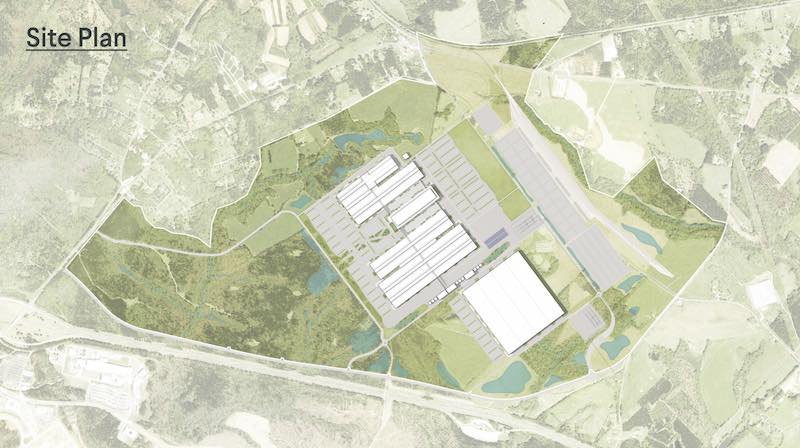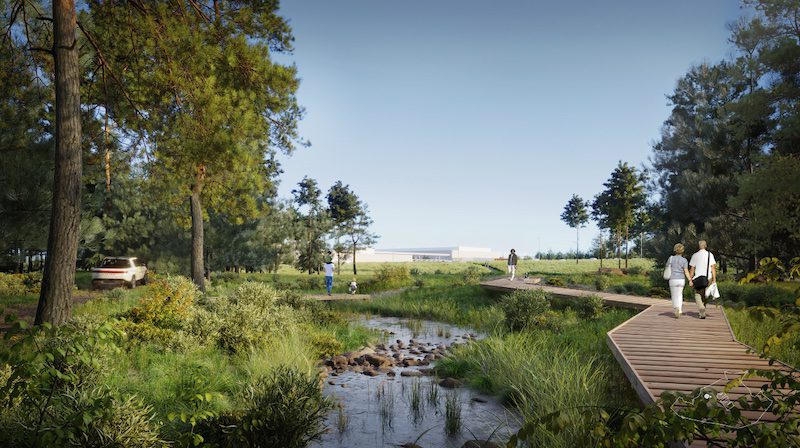California-based EV manufacturer Rivian has secured $US1.5 billion ($A2.1 billion) in state and local incentives to support the development of its $US5 billion EV assembly plant in Georgia, US.
Rivian has also announced that it has invested in a Tennessee solar power plant which will help to power Rivian Waypoints chargers planned for Tennessee’s state parks.
Rivian announced on Monday that the Georgia state government had approved a $US1.5 billion package of state and local incentives and tax credits which will support the development of the company’s second manufacturing plant.
Set to be built at Stanton Springs North, east of the state’s capital of Atlanta, the new $US5 billion Rivian manufacturing facility will employ over 7,500 workers and, once fully ramped, be capable of producing 400,000 vehicles each year.

The Stanton Springs and neighbouring Stanton Springs North high-tech and bio-pharma industrial parks are operated by a joint development authority (JDA) which was unsurprisingly ecstatic to welcome Rivian.

“Rivian’s cutting-edge electric vehicles are game-changing for the auto industry, our environment, and now the people of our community and state,” said Jerry Silvio, Chairman, JDA.
“Adding Rivian to our existing high-tech and bioscience companies in the region means we have more diverse career options than ever before. With the unprecedented number of jobs and investment from this project, our local communities and the state are on a path to enjoy sustainable growth and a bright future for years to come.”
The agreement with the state of Georgia was announced less than a week after Rivian revealed that it had partnered with Nashville-based clean energy company Clearloop to build the 6.75MW Paris Solar Farm – Puryear in Tennessee.
Clearloop, which works with companies to offset their carbon footprint and build solar projects, is building the Paris Solar Farm – Puryear in Tennessee, the first solar project in Henry County, located on the American “Sun Belt”.
Rivian provided upfront financing for 1MW of the 6.75MW solar project, the company’s first megawatt of renewable electricity which will cover the electricity needed to power its Rivian Waypoints chargers planned for Tennessee state parks as well as other clean energy commitments in the region.
Capital provided by Rivian has served to kickstart construction of the Paris Solar Farm – Puryear, which is designed to utilise new approaches to financing and siting that aim to put renewables on more fossil-fuelled grids where they are better able to displace coal and natural gas.
“Corporations have played a major role in growing renewables, but we’re arriving at a point where we need to evolve our approaches in order to truly decarbonize the nation’s entire grid,” said Laura Zapata, Clearloop co-founder and CEO.
“Clearloop is opening up a new solar financing mechanism that focuses on the carbon impacts rather than the megawatt hours. Rivian’s willingness to think creatively and take this different path is a key enabler.”
Joshua S. Hill is a Melbourne-based journalist who has been writing about climate change, clean technology, and electric vehicles for over 15 years. He has been reporting on electric vehicles and clean technologies for Renew Economy and The Driven since 2012. His preferred mode of transport is his feet.


